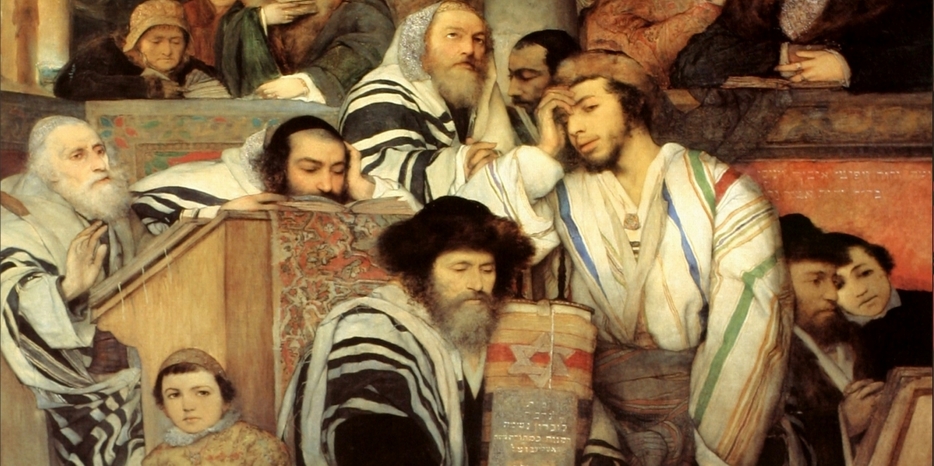By DONNIEL HARTMAN
Judaism is an aspirational religion which, while accepting the reality of failure, believes in the human capacity to transcend and achieve levels of excellence in our everyday lives. “You shall be holy, for I the Lord God am holy.” (Leviticus 19:2) “You shall be to me a kingdom of priests and a holy nation.” (Exodus 19:6) These are but two of the more potent examples of the aspirational quality of our tradition and its immense respect for the capacity inherent within the human being. As beings defined as being created in the image of God, there is nothing that we cannot do, a factor which created a tradition defined by commandment and expectation.
A significant manifestation of this future is the commandment of tshuva. We expect people to honestly assess the content and the quality of their lives, regret and admit their failures, and commit to embarking on a new direction. This expectation is brought to a climax during Yom Kippur, where the vidui (confession) which lies at the nucleus of the Yom Kippur liturgy places before us the realities of our sins and challenges us to honestly confront what we have done with our lives.
It is therefore deeply troubling to recognize the profound failure of Yom Kippur as a force for change. The passion, seriousness, and devotion which accompany many of us throughout Yom Kippur, peters out into a form of amnesia during the break-fast meal as we return to our behavior of yesterday.
Yom Kippur is a synagogue success story. More people show up than on any other day, pounding their hearts with great devotion as they cry out, “Ashamnu.” (“We have sinned.”) However, beyond its impact on Daylight Savings Time in Israel, Yom Kippur’s impact on Jewish life seems to be marginal.
This is not a new phenomenon. It may be the meaning behind Isaiah’s critique of the Jewish people and their fast days: The people indeed fast, “starve their bodies,” and “lie in sackcloth and ashes,” but this is not the fast day that God desires, but rather a day in which we “unlock fetters of wickedness and untie the cords of the yoke and let the oppressed go free.” (Ch. 58) To paraphrase Isaiah, the quality of repentance is not judged by what one does on Yom Kippur, but by what one does afterwards.
The problem with Yom Kippur in the synagogue is that it is too complete and comprehensive. It creates the myth of putting all of one’s life and behavior up for judgment, where we confront every one of our failings and repent for them all. The list of sins in the vidui is too extensive to have any impact on the life of a real person. For a prayer, and within the isolated environment of the synagogue, it is fine. As a force for facilitating change in real life, the comprehensive nature of our service makes it impossible to be a significant factor in everyday life.
Change, growth, and improvement, are rarely radical epiphanies, but are rather slow and gradual processes. As Maimonides in his “Guide for the Perplexed” teaches us, radical transformation away from that to which one is accustomed is impossible. (3:32) According to Maimonides, God and the Jewish tradition had immense patience with the idolatrous, slave mentality of the people who came out of Egypt and did not require them to accept or adopt either beliefs or practices which were too radically different from that to which they had grown accustomed. We must do the same both with ourselves and with others.
If Yom Kippur is to be the force that our tradition aspires it to be, it must cease to be the end and culmination of the process, and instead serve as its beginning. The purpose of the all-inclusive lists cannot be to ask an individual to review all of his life, but to create a menu from within which every individual can find one dimension, one quality that they can commit to working on.
Yom Kippur must cease to be a forum for New Year’s declarations and instead become a catalyst for a new culture amongst the Jewish community, a culture which fosters individual responsibility, reflection, and a commitment to being a tshuva person. As a tshuva person one commits to the ongoing and difficult path of constantly aspiring more from oneself. As atshuva person one neither views oneself as an ideal, nor fools oneself into believing in overnight conversions.
Our tradition teaches us that, “It is not for you to complete the task, neither are you free to desist from it.” Nowhere is this saying from “The Ethics of the Fathers” more relevant than in the task of building a life of value. This year, let us take tshuva out of the synagogue, disconnect Yom Kippur from its myriad of rituals, and place it at the foundation of our everyday lives.


